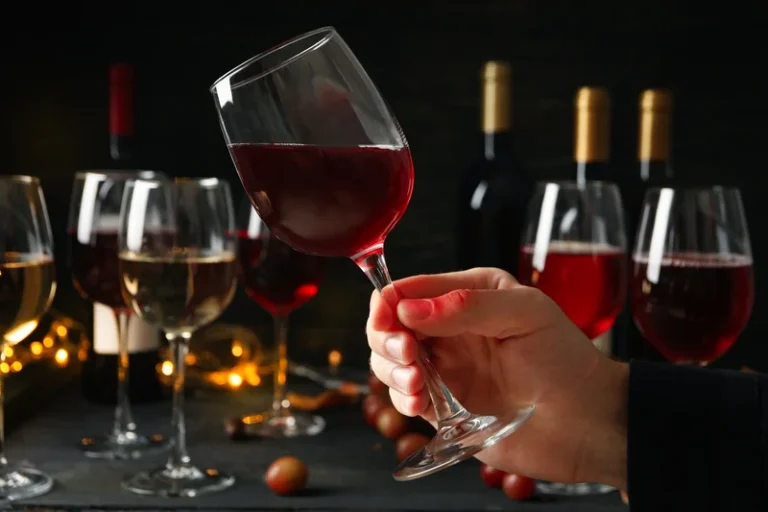
The point prevalence of generalised anxiety disease was reported in several of these investigations. The high prevalence of generalised anxiety and trauma history in Rwanda during the genocide, according to the authors, indicates that the prevalence of generalised anxiety disease is higher than 10% 13, 27. The primary focus of this study was to determine the causality of wine, beer, and spirit consumption for anxiety.

Put Hangxiety to Bed
- Alcohol-induced anxiety is a condition where individuals experience heightened feelings of anxiety or panic during or after consuming alcohol.
- It falls under the broader category of substance-induced anxiety disorders, where substance use directly leads to anxiety symptoms.
- In the United States, “moderate” typically refers to two drinks a day for adult men and one for women.
Lorazepam is typically prescribed for acute anxiety or panic attacks related to alcohol use. Like diazepam, it is not recommended for long-term use due to the risk of dependence. Diazepam is a benzodiazepine that enhances the effects of the neurotransmitter GABA, helping to reduce anxiety. Escitalopram is an SSRI that is particularly effective for generalized anxiety disorder. It works by increasing serotonin levels, which improves mood and reduces anxiety.
Be aware of mixing anxiety medications and alcohol

Reviewed by Tyler Trahan, M.D., an internal medicine and addiction can alcohol cause anxiety for days specialist who sees patients at Henry Ford Hospital – K Building and Henry Ford Maplegrove Center. It was late at night, and I was lying in bed, replaying a conversation I’d had earlier in the day. I dissected every word I’d said, analysing the other person’s facial expressions and trying to…
How To Stop Anxiety After Drinking Alcohol

Once you’ve cut down your drinking (or stopped drinking altogether), keep going like this for a couple of weeks. Most people can expect to see an improvement in their anxiety symptoms in this time as the brain’s balance of chemicals and processes start to return to normal and you experience better quality sleep6. It’s a natural human response and usually passes once the situation is over – for example around a job interview. But if you have feelings of anxiety that are constant, overwhelming, or affect your daily life, there are things you can do, and support that is available to help you manage. Alcohol may be a temporary, unhealthy way to relieve anxiety and forget about your underlying stressors; however, using alcohol does not erase these underlying triggers. Additionally, symptoms of anxiety will still be lurking around the corner as the underlying triggers have not been properly addressed and treated.

How alcohol affects your body and brain
Research shows that certain genetic markers increase the likelihood of experiencing anxiety in response to alcohol. Remember to show kindness to yourself if you feel embarrassment, guilt, regret, or shame after a night of drinking. Research has shown that self-compassion can reduce anxiety and depression symptoms.

If you experience sudden, intense anxiety and fear, it might be the symptoms of a panic attack.13 Other symptoms may include a racing heartbeat, or feeling faint, dizzy, lightheaded, or sick. In fact, if you’re experiencing anxiety, drinking alcohol could be making things worse. The answer to this important question has varied over time, but current US guidelines recommend that men who drink should limit intake to two drinks/day or less and women who drink should have no more than one drink/day. The definitions for a drink in the US are the common serving sizes for beer (12 ounces), wine (5 ounces), or distilled spirits/hard liquor (1.5 ounces). A healthcare provider might assess you for anxiety and depression if you have hangxiety frequently. They might suggest limiting or avoiding alcohol if it causes or worsens anxiety and depression symptoms.
- A therapist or counselor can provide strategies for managing anxiety without alcohol and support you in addressing any underlying issues contributing to alcohol use.
- Furthermore, this method provides a solid basis for assessing the causal inferences’ reliability by statistically establishing the strength and importance of these associations.
- In statistics, a unit root test tests whether a variable is non-stationary, utilising an autoregressive demonstration.
- In some cases, individuals may develop panic attacks or chronic anxiety, even when not drinking.
- For example, a 2018 study found that light drinkers (those consuming one to three drinks per week) had lower rates of cancer or death than those drinking less than one drink per week or none at all.
- Treatment for anxiety disorders and alcohol use disorders varies depending on the individual and the symptoms, so it’s critical to work with a professional to get the help that you need.
Sleep disruption
- Regarding anxiety and spirit consumption, observations showed a one-way right direction causal relationship anxiety to spirit consumption among Belgium, Italy, Iceland, Ireland, Luxembourg, and the United Kingdom.
- Individuals who use alcohol to cope with stress, social anxiety, or other mental health issues are at higher risk.
- To understand exactly why this happens, chemically, it’s important to understand the role of GABA—a neurotransmitter—in the brain and body.
This symptom is more pronounced during withdrawal or in individuals Drug rehabilitation with a history of anxiety disorders. You might have found yourself asking one or more of the following questions, “Does alcohol increase anxiety? Alcohol does overall increase the anxiety symptoms of individuals that suffer from anxiety disorders.
- This feeling, known as hangover anxiety or “hangxiety”, affects around 22 percent of social drinkers.
- They might suggest limiting or avoiding alcohol if it causes or worsens anxiety and depression symptoms.
- A heavy influx of alcohol can lead to your body blocking its own GABA receptors in an attempt to re-establish this equilibrium.
- Escitalopram is an SSRI that is particularly effective for generalized anxiety disorder.
Social Anxiety Disorder & Alcohol Dependence
It is typically taken twice daily, with dosage adjustments based on the patient’s response. Many people can hide a problem with alcohol or drug misuse for many years. Learn the signs from an Ohio State clinical psychologist to know when to refer someone to a mental health professional. Holiday stressors can lead to anxiety, depression and, for some, directly result in relapse. Here’s how to navigate this as a someone struggling with addiction or as one of their supportive loved ones.
